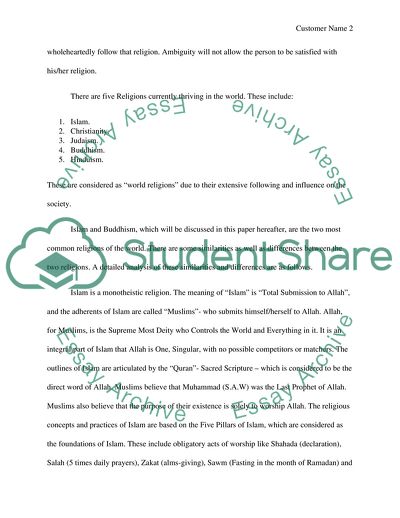Cite this document
(Comparison between Islam & Buddhism Report Example | Topics and Well Written Essays - 3000 words, n.d.)
Comparison between Islam & Buddhism Report Example | Topics and Well Written Essays - 3000 words. https://studentshare.org/religion-and-theology/1757360-compare-and-contrast-two-specific-characteristics-that-are-evident-in-two-modern-religious-faiths
Comparison between Islam & Buddhism Report Example | Topics and Well Written Essays - 3000 words. https://studentshare.org/religion-and-theology/1757360-compare-and-contrast-two-specific-characteristics-that-are-evident-in-two-modern-religious-faiths
(Comparison Between Islam & Buddhism Report Example | Topics and Well Written Essays - 3000 Words)
Comparison Between Islam & Buddhism Report Example | Topics and Well Written Essays - 3000 Words. https://studentshare.org/religion-and-theology/1757360-compare-and-contrast-two-specific-characteristics-that-are-evident-in-two-modern-religious-faiths.
Comparison Between Islam & Buddhism Report Example | Topics and Well Written Essays - 3000 Words. https://studentshare.org/religion-and-theology/1757360-compare-and-contrast-two-specific-characteristics-that-are-evident-in-two-modern-religious-faiths.
“Comparison Between Islam & Buddhism Report Example | Topics and Well Written Essays - 3000 Words”. https://studentshare.org/religion-and-theology/1757360-compare-and-contrast-two-specific-characteristics-that-are-evident-in-two-modern-religious-faiths.


